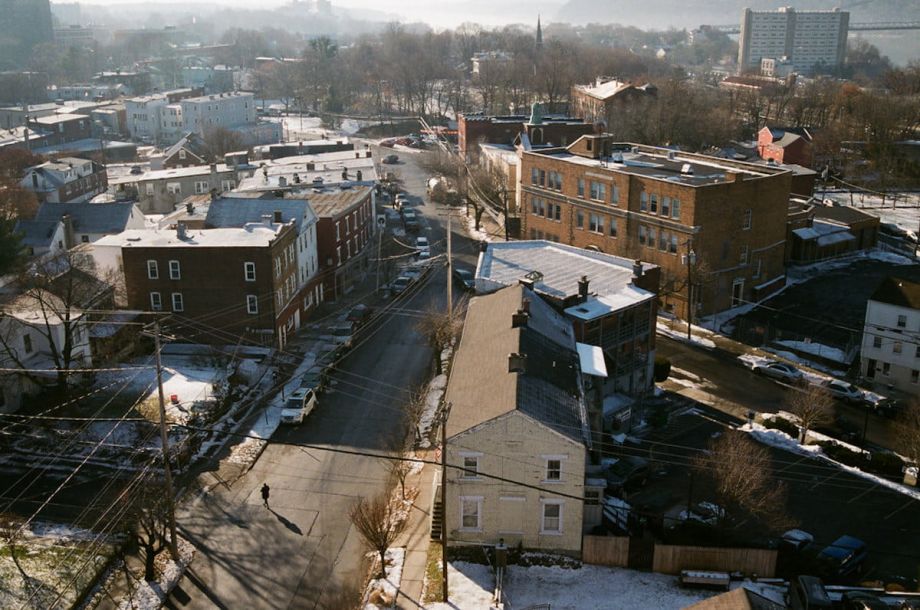Welcome back to The Weekly Wrap!
Next month, we’re hosting our first-ever film festival and we’re super excited about it. The Ecometropolis Film Festival will feature films that tackle the most pressing climate issues of our time — clean energy, land stewardship and sea-level rise. Click the link above to watch the trailers and sign up to watch them with us. Hope to see you there!
Poughkeepsie Vacancy Study Sets Up Rent Regulation
The city of Poughkeepsie released the results of a vacancy study on April 16, showing that 3.96% of units in the 112 properties eligible for rent regulation were vacant. Under a 2019 expansion of the state’s Emergency Tenant Protection Act of 1974, cities with a vacancy rate below 5% can opt into rent regulation. “The study results indicate a crisis of available housing in Poughkeepsie and provide compelling grounds for the city’s Common Council to opt into ETPA as soon as possible,” according to a press release from the advocacy group For The Many, which pushed for the study. The survey results come months after the city of Kingston enacted a historic 15% rent reduction, which was recently upheld by the New York State Supreme Court.
California Public Transit To Gather Rider Harassment Data
A California law passed last year requires the state’s 10 largest public transit agencies to collect data “to improve the safety of riders and reduce street harassment” and make those findings public by the end of this year. According to The American Prospect, the survey will log instances of harassment by transit line as well as gender, race, religion or language of the targets of harassment. According to the Prospect, the Bay Area’s BART system began gathering its own data on harassment in 2020 with the help of community organizations. The agency deployed unarmed members of its police department to monitor the behavior of riders. The system also handed out cards informing passengers about “bystander intervention.” And the transit system ran fewer trains so that there were fewer empty train cars, which it said improved feelings of safety.
Department Of Justice Finalizes Web Accessibility Rules
The Department of Justice will finalize a rule on accessibility standards meant to bring web and mobile content in line with the Americans with Disabilities Act, Disability Scoop reports. The rule requires that web and mobile designers follow Web Content Accessibility Guidelines Version 2.1, a standard that encompasses requirements for digital screen readers, speech recognition software and video captioning. The rule will take effect 60 days after being published in the Federal Register, and state and local governments will have two to three years to come into compliance depending on population size, according to Disability Scoop.
House Bill Could Prop Up Office To Residential Conversions
A bill introduced in the House of Representatives would require the government to conduct an annual assessment of real estate it owns and determine if it can be converted for residential use, Smart Cities Dive reports. The Government Facilities to Affordable Housing Conversion Act was introduced by Representative Adam Schiff on April 2 and would require that HUD, the U.S. General Services Administration and the Office of Management and Budget submit the annual report to Congress. It would also allocate an additional $1.75 million annually — from 2025 to 2030 — to a federal grant program intended for office-to-residential conversions and establish a new grant program for state and local governments with 30-year affordability requirements.
Google Employees Protest Cloud Contract with Israel
Google employees engaged in an hours-long sit-in in its New York and Sunnyvale offices on Tuesday, protesting the company’s cloud contract with the Israeli military amid the ongoing Palestinian genocide. Nine employees were detained by police before being released. While the New York protest was at a common area of Google’s Chelsea office, the Sunnyvale protest was at the office of billionaire Thomas Kurian, CEO of Google’s Cloud division, WIRED reports. Google has a $1.2 billion contract called Project Nimbus with Israel’s government that involves direct services to the Israeli Defense Force. A consensus of experts on genocide believe Israel’s military is either committing genocide or in danger of committing genocide, while multiple investigations have confirmed massacres of Palestinian civilians.
An organization called No Tech For Apartheid was formed in 2021 and organized this week’s protest. The Intercept reported that the Israeli military is using Google Photos to make a “hit list” of alleged Hamas fighters. The military has arrested thousands of people without charge since October 7, in some cases using Google facial recognition as a pretext. The poet Mosab Abu Toha, who was arrested, detained and tortured, told the New York Times that the IDF attributed his arrest to facial recognition.
Curated by Deonna Anderson
MORE NEWS
-
New regulations under the Pregnant Workers Fairness Act will give millions of workers access to unpaid leave for the first time. The 19th
-
Houston advocates are pressuring the city for sewage overflow funding. Axios
-
Boston, which faces sea-level rise and more intense storms, is teaming up with a climate tech company to map floods as they happen. Smart Cities Dive
-
The city of Austin may ban windowless bedrooms, after developers built thousands of them. KUT
We’re skipping the resources and events section this week. Have anything we should share for those sections in the coming weeks? Email us at wrapped@nextcity.org.
This article is part of The Weekly Wrap, a newsletter rounding up stories that explain the problems oppressing people in cities and elevate the solutions bringing us closer to economic, environmental and social justice. Click here to subscribe to The Weekly Wrap newsletter.

Roshan Abraham is Next City's housing correspondent and a former Equitable Cities fellow. He is based in Queens. Follow him on Twitter at @roshantone.











Add to the Discussion
Next City sustaining members can comment on our stories. Keep the discussion going! Join our community of engaged members by donating today.
Already a sustaining member? Login here.